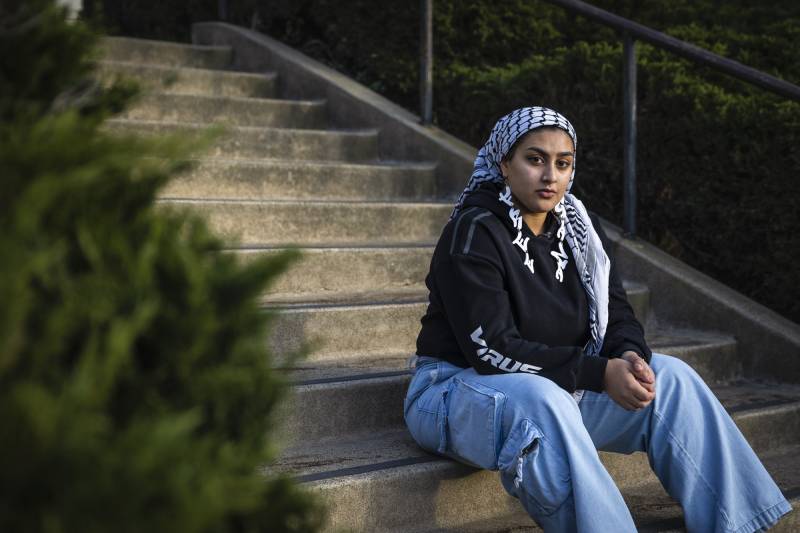Howard, who is Jewish and has cousins living in Israel, was mortified that people she cared about were responding to the horrific acts by making statements that, to her, felt anti-Jewish. As the days passed, it became harder and harder to focus on running her communications business in Oakland.
“That’s when I started to have night terrors,” Howard said. “I was ending my days going into my closet. I would just cry and turn off the lights. Close the door. It just felt like what I had to do.”
These symptoms reflect secondary trauma, according to Sara Ghalaini, a licensed psychotherapist in Berkeley. She said an individual may experience symptoms of post-traumatic stress disorder if they are exposed to people who have been traumatized or hear descriptions of traumatic events.
“If you’re surrounded by it or witnessing it, you yourself are also part of that, even if you don’t realize you are,” Ghalaini said.
She recommended people who are suffering surround themselves with community. Some people may find relief praying at a mosque, temple or church. Others may feel better after hitting the gym. Ghalaini said we are experiencing a “collective grief” and advised people to be gentle on themselves as there is no quick fix.
Bharoocha said she feels less helpless when she is protesting. She volunteers for groups that have organized numerous rallies, including a mass student walkout on Oct. 25. “For me, those are spaces to grieve and process,” she said.

